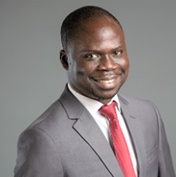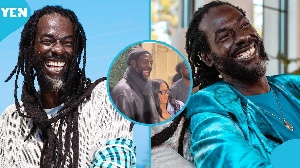Business News of Monday, 7 April 2025
Source: www.ghanawebbers.com
From aid to equity: Making strategic deals in the Trump era

The global economy depends on vital resources. In Trump's America, nothing is free; everything is a deal. Ghana must learn to negotiate and show its strengths, like Ukraine and Israel.
Ghana should stop being a grateful aid recipient. Instead, it needs to assert its power. When aid stops, there’s no need to panic; it's time to strategize. In this world, actions speak louder than words.
Ghana must adapt to the reality of "The Art of the Deal." Strength is currency; complaining about fairness won't help. Instead of protest letters, Ghana should present solid proposals based on export data.
Every barrel of oil, ounce of gold, and acre of cocoa can be bargaining chips. To attract Trump’s attention, Ghana needs appealing projects and a willingness to negotiate. Ukraine built alliances for military aid instead of just complaining about Russia.
Ghana can propose joint ventures in energy, tech parks, and AI hubs. It should act like a major shareholder rather than a supplicant.
To thrive in Trump's transactional world, Ghana must ask three questions:
1. What does America want? Rare earths? Military cooperation? Trade routes?
2. What can Ghana confidently offer? Valuable resources like gold and cocoa.
3. How can every deal benefit Ghana? Stop relying on aid; negotiate as a partner.
Ghana can learn from Huawei's experience with U.S. sanctions. After being banned from Google services, Huawei created HarmonyOS and became self-reliant.
Now is Ghana's "Huawei moment." With cuts in aid, it must pivot towards co-ownership in the global economy. It's time to move away from “Donor Dependency 1.0” and adopt “Sovereign Strategy OS.”
Here are some strategies for Ghana:
1. Build relationships with Eastern countries; diversify trade partners.
2. Move up the value chain by processing goods domestically.
3. Create sovereign funds for strategic investments instead of waiting for aid.
Trump unintentionally gave developing countries an opportunity: stop waiting for handouts. Imagine headlines like “Ghana launches Pan-African Cocoa Exchange” or “Accra unveils ‘PONE Index’.”
Ghana should brand itself as "the partner with leverage." It’s time to be tough and smart in negotiations. Sentimental speeches won’t work anymore; money and data matter most.
To achieve results, Ghana needs a negotiation team with experts in various fields such as economics and trade law.
Here’s an action plan:
1. Ensure American firms fairly repatriate profits while reinvesting meaningfully.
2. Revise contracts in the extractive sector for better revenue sharing.
3. Partner with U.S firms to transform state-owned enterprises responsibly.
4. Export value-added products instead of raw materials.
Let Trump’s legacy inspire action—not fear but motivation to get paid fairly now that foreign aid has changed.
This is an opportunity for PONE: Pay Our Nations Equitably—a new system for formerly aid-dependent countries ready to compete globally without begging.
Ghana must stop being seen as a charity case and start acting competitively by charging tolls instead of burning bridges.
In Trump's world, every nation negotiates; every asset is valuable leverage.
Finally, Ghana should approach global summits confidently with clear goals and proposals that benefit both parties involved—this aligns with what the Trump administration understands best: mutual benefit through negotiation.
BERNARD BEMPONG
Bernard is a Chartered Accountant with over 14 years in financial services and management consultancy at J.S Morlu (Ghana). He leads innovations like www.recksoft.com (an AI-powered reconciliation tool) and www.finovatepro.com (a financial platform for SMEs).
Our office is located at Lagos Avenue, East Legon, Accra.
Contact: +233 302 528 977 | +233 244 566 092
Website: www.jsmorlu.com.gh










